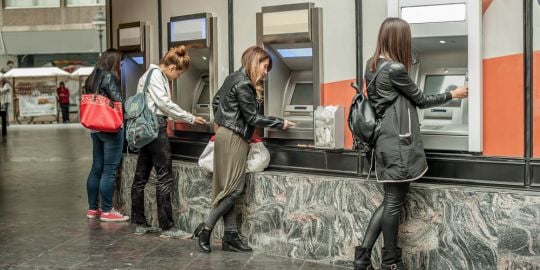LLGM wrote:If the US moved to residency-based taxation, they would restrain themselves to look at only US-residing "tax-cheats" who are hiding money overseas, rather than spending time and manpower criminalizing all US citizens who choose to live outside the homeland. Besides, most of the wealthy US-citizen money-hiders/tax cheats live IN THE US....
Having ALL USA citizens report and pay taxes on their world wide income is NOT criminalizing them. The fact that most wealthy tax cheats live in the USA is because they owe the taxes no matter where they live. If it were based only on residency, then the tax cheats would legally set up a foreign address and never pay USA income tax again. This would be the ultimate result of your campaign, wealthier people paying less or no taxes. How Republican of you.













